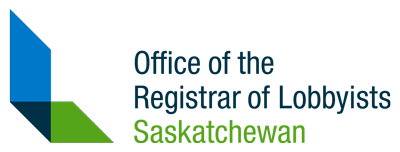What is Lobbying?
The purpose of The Lobbyists Act is not to impede anyone’s right to communicate with their MLA, a Minister or any public office holder. The purpose is to ensure that those who are specifically getting paid to attempt to influence a decision are open about their activities so everyone has the same opportunity to understand who and what information was taken into consideration on a particular policy or decision.
Some examples of lobbying would include:
- A coalition of businesses hires you to present their suggestion for an amendment of The Saskatchewan Employment Act.
- You are a government relations person and over a cup of coffee with a Deputy Minister you talk about the need for regulation changes.
- You are a paid advocate and organize an appeal on Facebook or Twitter calling for changes to the Wildlife Act asking the public to get involved and talk to their respective MLA about the topic.
- A seed fertilizer company hires you to arrange a meeting to inform elected officials about the benefits to consumers, farmers and the environment deriving from plant sciences innovation.
- You are at a social event and engage in conversation with a public office holder on behalf of one of your clients.
Not all meetings and communications are considered lobbying, nor is everyone who speaks to a public office holder about a specific topic considered a lobbyist. Volunteers and government officials speaking to each other in their official capacity are not considered lobbyists.
Other examples of what is NOT considered lobbying:
- A presentation is made within the framework of a judicial or adjudicative proceeding such as an employment tribunal.
- Representation is made within the framework of a parliamentary commission or public forum where the proceedings are a matter of public record, such as during a town hall meeting or public consultation session.
- You have been asked by a public office holder to speak on a specific topic.
